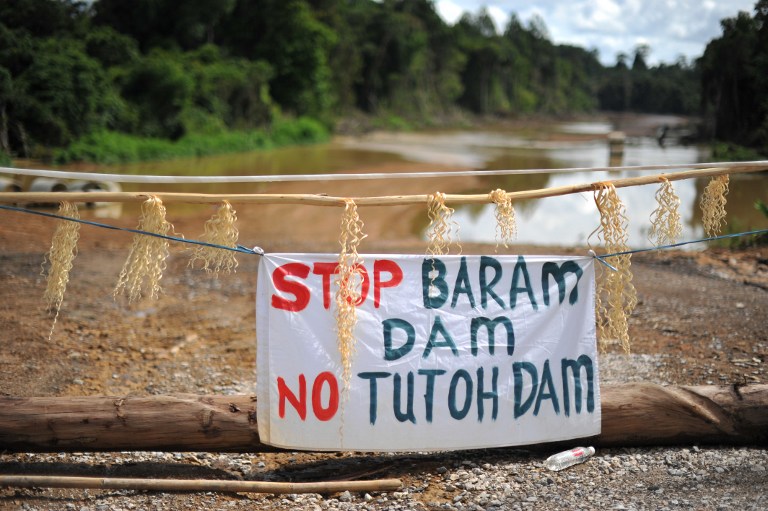Sarawak activists slam the construction of 10 new mega-dams
Indigenous communities, who currently have no access to energy, are being evicted to build hydroelectric dams in Sarawak rivers to the benefit of foreign investors, which will severely affect local biodiversity. Activists complain that this “scourge” will have “serious social and environmental implications.”
Kuala Lumpur (AsiaNews) – Sarawak, a state in Malaysian Borneo, is planning to build 10 new mega-dams, which will be added to the five already in operation.
Announced last month, the plan threatens the future of local indigenous communities, who live in remote areas and are set to be displaced and relocated far from their natural habitat.
Local human rights groups have slammed the dams, which, in their view, will only benefit rich local tycoons and foreign investors. In addition to displacing entire indigenous communities, such structures will destroy biodiversity through deforestation and mass flooding of forested areas.
“I just returned from visiting a longhouse located close to the Batang Ai dam in Lubuk Antu,” said human rights activist Peter John Jaban speaking to AsiaNews. “The longhouse consists of 38 households. The native folks here live in the dark. They are yet to benefit from the hydroelectric dam which is operating nearby. This is a case of too near yet too far.”
Indigenous families use a generator that is turned on at 7 pm until midnight; they have no household appliances and do not even have internet coverage. "I ask myself: who really benefits from these projects?" Jaban wonders.
The activist notes that dam construction forces tribal communities to be resettled far from their traditional habitat, where they once lived, sowed, harvested, and hunted, while making a living selling forest products in local trade.
“It is largely for these reasons that the construction of hydropower dams is criticised everywhere in the world,” Jaban explained. “If these projects benefit the people, nobody will complain, but most of the time these projects are a scourge that has serious social and environmental implications, that can never be restored or repaired in any conceivable way.”
The Society for the Rights of Indigenous People of Sarawak (SCRIPS) notes that five mega-dams are already operating in the country.
Echoing Jaban, SCRIPS secretary general Michael Jok laments that “it is not the people who benefit from these dams;” instead, “gains from constructing these dams largely benefit foreign industrialists and local tycoons, and not the people of Sarawak.”
According to Jok, SCRIPS is against the state government's plans to build 10 dams across the state, which State Minister of Public Utilities and Telecommunication Datuk Julaihi Narawi announced last month.
Natives want answers from the Sarawak government and the state assembly.
“We have already identified the 10 river basins where river currents can be harnessed to generate electricity,” Narawi said. “The plan by the Premier of Sarawak, Abang Johari Openg, is to generate 10 gigawatts of electricity by 2030.”
For Jok, plan proponents must “prepare a written working paper about the construction of the cascading dams with actual ‘ground finding’ on the pros and cons of such dams. We should be able to bring our experts to the discussion table,” he told AsiaNews.
Another NGO, Save The Rivers, agrees. “The hydroelectric dams built in the past left legacies of false hope and disappointment for the indigenous peoples and local communities. Various problems and complaints regarding compensation, land, and housing are either not resolved or purposely ignored,” it noted.
“This is because the government’s focus is solely on economic gain either for the state or elsewhere. The welfare of those impacted by these projects is not properly addressed,” Save The Rivers chairman Peter Kallang told AsiaNews.
For Kallang, safeguarding human rights and protecting the environment should be at the top of the priority list when implementing massive projects like these.
“Since the indigenous population depends on the rivers and land for their livelihood their rights must be respected by carrying out proper, thorough, and meaningful consultation before the outset of the project, based on the United Nations Declaration on the Rights of Indigenous Peoples of Free, Prior and Informed Consent,” Kallang insisted.
25/03/2022 18:08
21/06/2016 14:51







.png)










